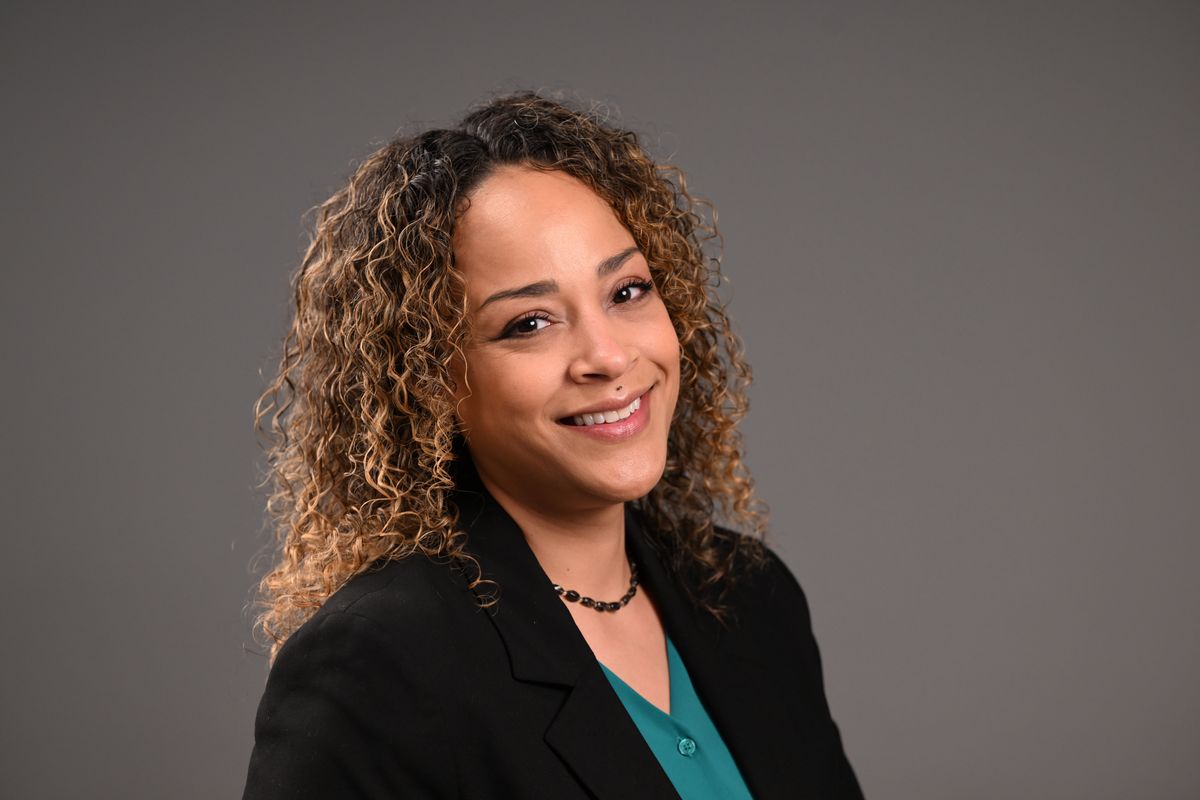It is my honor as editor to re-launch The Black Lens to the Black community here in Spokane.
We are forever grateful to our founder, Sandy Williams, for having the vision that is The Black Lens for the Black community in Spokane. If you knew Sandy, then you knew how much work she put into publishing The Black Lens every month. Sandy worked tirelessly to launch and grow The Black Lens beginning in 2015. With the help of her partner in life, Pat Hicks, she was able to keep it going through January 2022. We honor their memory and carry their legacy forward for the benefit of generations to come.
The Black Lens is back to tell Black stories, share Black events and community happenings, and talk about how local and national issues are impacting the Black community.
Black people have not always had the benefit of a written history. Black History was often passed through the spoken word, storytelling, secret languages, and through music and art. Black people have also not always had the benefit of being able to safely congregate in order to share news, events, culture, or joy. The news, whether in print or digital form, is a way to connect us across neighborhoods, cities, and any other artificial borders. These mediums all make Black culture borderless.
Stepping into this role as editor, I am well aware of the importance of this platform and the power of the written word. I intend to protect the independence of The Black Lens, a newly formed Washington nonprofit entity, and ensure it continues its mission as an independent community publication focused on news, events, people, issues, and information of importance to Spokane’s Black community.
Of course, I could never do this alone, nor would I want to. It will take the support of the Black community, partnerships with the greater Spokane community, and a strong board to lead The Black Lens into this new era. Please join me in welcoming board members Robert Lloyd, Nikki Williams, Alethea Dumans, Michael Betheley, Luc Jasmin III and Rick Williams.
It is my hope that the possibilities of this paper are endless and that black people in Spokane see endless possibilities for themselves and our community. So, for this first edition, I share this sentiment: There is no platform or place too small, including Spokane, that we can’t make change that impacts the whole world. Each of us is enough. Right where we are. No matter where or what we come from. Let’s go!
About our founder and Spokane legend Sandy Williams
Sandra Williams was an activist, lecturer, filmmaker and entrepreneur, with an extensive background addressing issues of discrimination, equity and social justice.
Sandra received her bachelor’s degree in psychology from Washington State University and her master’s degree in film/television production from the University of Southern California School of Cinema.
She was involved in anti-oppression/anti-discrimination work for nearly 40 years, as the coordinator of the Pride Center at Eastern Washington University, the executive director of Odyssey Youth Center, the Spokane Field Coordinator for Youth Suicide Prevention Program and as an HIV/AIDS prevention educator, focused on communities of color.
In addition to activism and grassroots organizing, Sandra effectively used the mediums of film, video, theater and the spoken word as tools to address discrimination and oppression. In 2008, she ventured into radio with the development of a bi-monthly public affairs program on KYRS Radio 92.3 FM in Spokane. Her program, “Revolutionary Spirituality,” which aired for four years, looked at the diversity that exists within religious and spiritual beliefs, and addressed the ways that organized religion has been used as a weapon of oppression.
In 2013, focusing her attention primarily on the needs of Spokane’s African American community, Sandra accepted an appointment by Governor Jay Inslee to the Washington State Commission on African American Affairs as the Eastern Washington representative and served from 2013 to 2018.
In 2018, Sandra spearheaded the development of the Carl Maxey Center, an African American cultural center located on Fifth Avenue in Spokane’s East Central Neighborhood. The Maxey Center purchased its building in August 2018 with the goal of uplifting and empowering Spokane’s African American community from the inside out. It continues its transformation into a sustainable (green) and technologically innovative hub that focusing on Equity, Racial & Social Justice, Business & Workforce Development, Education & Advocacy and Cultural Enrichment.
Sandra Williams’ contributions to the Spokane community, Washington state and beyond are immeasurable, and will not only be remembered but will serve as the foundation for future progress for Spokane’s Black community. A pillar and Spokane treasure. Thank you, Sandy.
